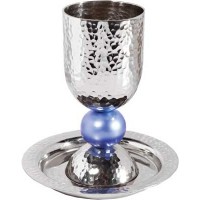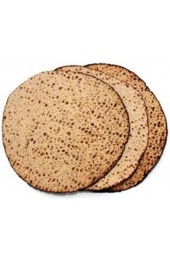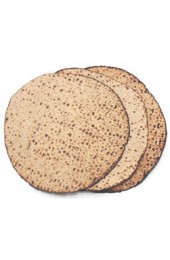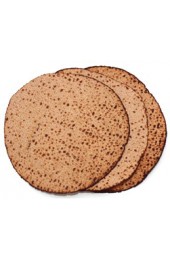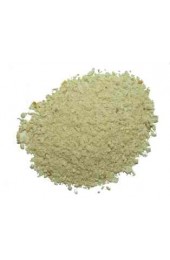
Shmurah means watched or guarded, and it is an apt description of this Matzah or Matzoh, the ingredients of which (the flour and water) are watched from the moment of harvesting and drawing.
It is a mitzvah that the Passover matzot be made specifically for the purpose of fulfilling the obligation to eat matzot on Passover, as the verse (Exodus, 12:17) states: You shall guard the matzot. The matzah must be guarded to ensure that it does not become chametz; matzah which was not guarded may not be used on Passover.
The day chosen for the harvesting of the wheat is a clear, dry day. The moment it is harvested, the wheat is inspected to ensure that there is absolutely no moisture. From then on, careful watch is kept upon the grains as they are transported to the mill. The mill is meticulously inspected by rabbis and supervision professionals to ensure that every piece of equipment is absolutely clean and dry. After the wheat is milled, the flour is again guarded in its transportation to the bakery. Thus, from the moment of harvesting through the actual baking of the matzah, the flour is carefully watched to ensure against any contact with water.
In the bakery itself, Shmurah matzot are under strict supervision to avoid any possibility of leavening during the baking process. This intensive process and careful guarding gives the shmurah matzah an added infusion of faith and sanctity in fact, as the matzah is being made, all those involved constantly repeat: Lshem Matzot Mitzvah, We are doing this for the sake of the Mitzvah of Matzah.
Shmurah Matzot are round, kneaded and shaped by hand, and are similar to the matzot that were baked by the Children of Israel as they left Egypt. It is thus fitting to use shmurah matzah on each of the two Seder nights for the matzot of the Seder plate.
Showing 1 to 4 of 4 (1 Pages)
Powered By OpenCart
Breslov Judaic Giftshop © 2024
Learn how your Shul can make more Minyans with our Minyan Maker App

